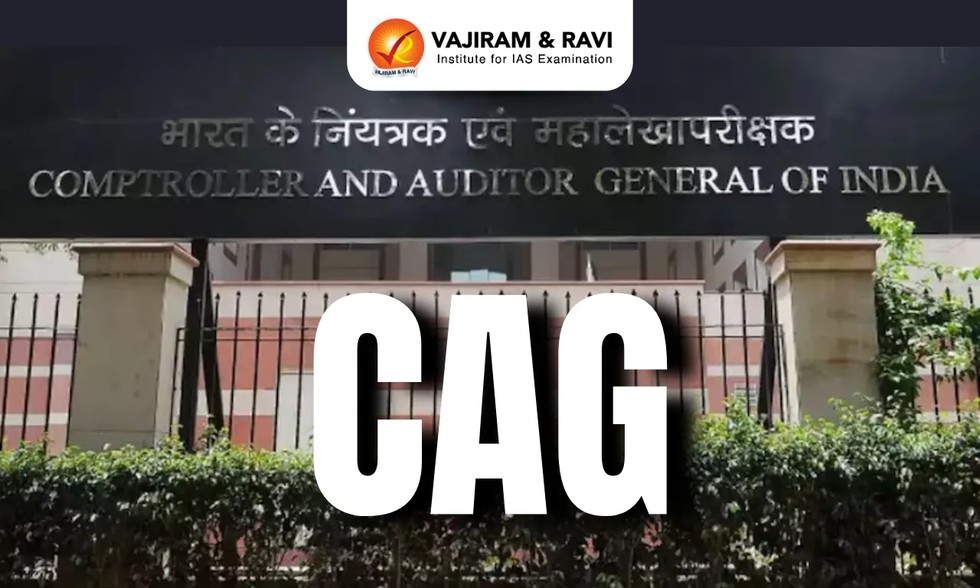About the Comptroller and Auditor General (CAG)
- The CAG of India is the head of the Indian Audit and Accounts Department (IA-AD) and is responsible for auditing government expenditures to ensure financial accountability.
- As per Article 148 of the Constitution of India, the CAG safeguards the public purse and monitors financial transactions at the Central and State levels.
- The CAG is one of the key pillars of Indian democracy, alongside the Supreme Court, Election Commission, and Union Public Service Commission (UPSC).
- The CAG’s powers and responsibilities are defined by the Comptroller and Auditor-General’s (Duties, Powers and Conditions of Service) Act, 1971, with amendments in 1976, 1984, and 1987.
Constitutional Provisions related to CAG
- Article 148: Defines the appointment, term, and conditions of the CAG.
- Article 149: Specifies the CAG’s duties and powers to audit government accounts.
- Article 150: Requires that government accounts be maintained as prescribed by the President on the CAG’s advice.
- Article 151: Mandates that CAG audit reports be submitted to Parliament and State Legislatures.
- Article 279: Grants the CAG authority to certify "net proceeds" of taxes and duties.
- Sixth Schedule: Requires the CAG to audit District and Regional Council accounts.
Appointment and Term of the CAG:
- Appointed by the President of India through a warrant under his hand and seal.
- Holds office for six years or until reaching the age of 65, whichever comes first.
- Takes an oath of office to perform duties impartially, without fear or favour.
- Can be removed by the President in the same manner as a Supreme Court judge, which requires a special majority resolution in both Houses of Parliament.
- Can resign at any time by submitting a resignation letter to the President.
Independence of the CAG:
- Cannot be removed at the President’s discretion; only constitutional procedures
- After completing tenure, the CAG cannot hold any further government office under either the central or state governments.
- Salary is determined by Parliament, equivalent to that of a Supreme Court judge.
- Administrative expenses (including salaries, pensions, and allowances) are charged upon the Consolidated Fund of India, meaning they do not require parliamentary approval.
- No minister can represent the CAG in Parliament or take responsibility for CAG’s actions.
Duties and Powers of the CAG:
- Audits the expenditure from the Consolidated Fund of India and State funds.
- Examines government corporations, public sector undertakings (PSUs), and other government-funded bodies.
- Certifies net proceeds of taxes and duties, ensuring financial accuracy.
- Audits debt, advances, and suspense accounts.
- Submits audit reports to the President, which are then presented in Parliament and examined by the Public Accounts Committee (PAC).
- Acts as an agent of Parliament, ensuring that public money is used legally and efficiently.
- Conducts propriety audits to assess whether government spending is wasteful or extravagant.
Difference Between CAG in India and the UK:
- The CAG of India does not control fund disbursement; it functions as an Auditor-General only.
- In contrast, Britain’s CAG acts as both Comptroller and Auditor-General, exercising direct control over fund releases.
CAG’s International Audit Responsibilities:
- International Atomic Energy Agency (IAEA) (2022-2027): Ensures safe use of nuclear technology worldwide.
- Food and Agriculture Organization (FAO) (2020-2025): Audits operations aimed at achieving global food security
